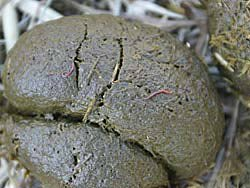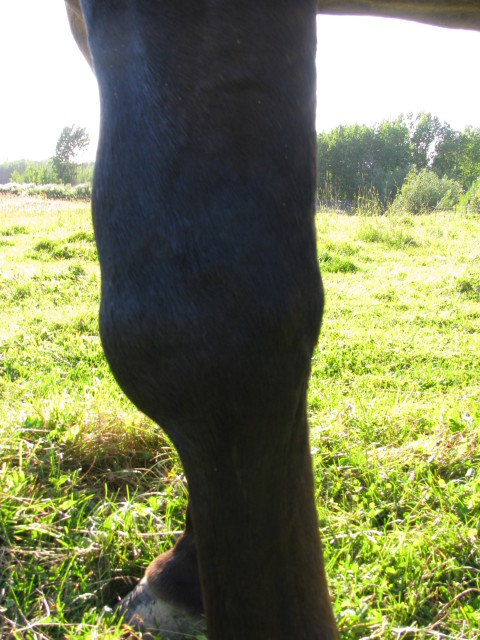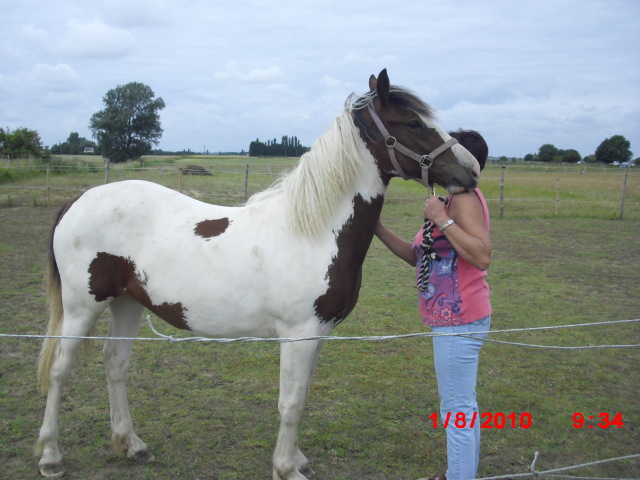QuestionHi Susan!
Yesterday our new "baby" was delivered to the house. She is a 2 year old range horse with very little to no handling. This is her first time without her herd. She was in a group of about 30 2 year olds since March. They were all saved from auction to become dog food. The gentleman who loved these horses allowed them free range (no fences) and they grew and procreated without human intervention. Their first handling was when they were rounded up, given their first worming and shots and the males gelded.
Based on your response to a gal that had a 9 month old it sounds like we should keep feeding and working separate. About how much time do you suggest working on trust each day? (We definately have a trust issue and need to establish who is boss.) Is this something I should be doing in the corral before feeding times? Or should I just establish a specific time each day to go out and work with her. Also...because of her lack of handling and trust do you think I should wait a bit to schedule a vet visit for additional care?
Thanks for your help!
Michelle
AnswerHi Michelle,
Congratulations on your new "baby"! Getting a horse off the range can be very satisfying and a great adventure, all at the same time. Here are some of my suggestions, from the work I've done with mustangs:
--Spend time as often as possible in the stall or pen with your horse. She needs to get to know you and get used to having you around.
--As you suggested in your message, do not use food as a reward for work or accomplishments with a formerly wild horse; to them, food is a life or death matter, and their behavior can very quickly turn ugly if they get aggressive in going after food.
--Read up on herd dynamics, since your new horse will need to see you as the leader of her new herd. The herd boss is the one who keeps all the other horses in check, and they look to the herd boss for protection, for good grazing places, and to govern the herd hierarchy.
--Be very consistent but fair with your expectations. Horses need both to feel safe and secure around humans.
--If you get a chance, read Monty Roberts' ideas about join-up. In a nutshell, join-up involves using a lead rope or lunge whip to send your horse away from you (in an arena or turn-out area)until they get the idea that you're the herd boss and become submissive to you. You can tell when they become submissive when they start "licking and chewing" (making eating motions with their mouth). When that happens, you let in close to you to get pats and strokes. If they won't let you touch them, you drive them away again until they become submissive, the try again. It can take a few times to get the horse to allow you to touch them, but don't give up halfway through the process or you'll have to work twice as hard the next time. This is a great way to build trust since you're using the language that they understand.
--Another great trainer that I recommend is John Lyons. He's got some great suggestions for dealing with young, inexperienced horses. You can sometimes find his training videos online at half.com or ebay for cheap. They're a great way to get a visual image of how to do something.
As long as your horse was wormed and vaccinated at the round up, you should be okay without a vet visit for a while. It's very difficult to establish trust when one of their first experiences with you is being caught and handled by a stranger; it'll cost you more, too. Vets aren't usually real fond of dealing with a wild horse. It'll go much better if you can wait a couple of weeks, until you're able to halter and hold her without a major struggle. Of course, if there's any problem at all, don't hesitate to call the vet out. The horse's well-being comes before training issues.
Be consistent and don't give up. Remember, if you give up before accomplishing your goal for a training session, it's much harder the next time because the horses learns that, if she resists, you'll give up. I hope this helps! Good luck with your new girl, and don't hesitate to write back if you have more questions.
--Susan

 horse dropping - worms
Question
horse droppings
hello Lyn, i have attac
horse dropping - worms
Question
horse droppings
hello Lyn, i have attac
 Swollen Knee
Question
horse
Hello Judi,
I live in Canada and
Swollen Knee
Question
horse
Hello Judi,
I live in Canada and
 Wild Horse.
Question
My Crazy Horse
Hi, I have a 17 month old filly
Wild Horse.
Question
My Crazy Horse
Hi, I have a 17 month old filly
 A horse that doesnt like to be around unfamiliar horses
QuestionCruiser
QUESTION: Im 53, I have about a
A horse that doesnt like to be around unfamiliar horses
QuestionCruiser
QUESTION: Im 53, I have about a
 bleeding hooves - Rick Gore Horsemanship
Question
hooves
hi rick! I have attached a photo so you
bleeding hooves - Rick Gore Horsemanship
Question
hooves
hi rick! I have attached a photo so you